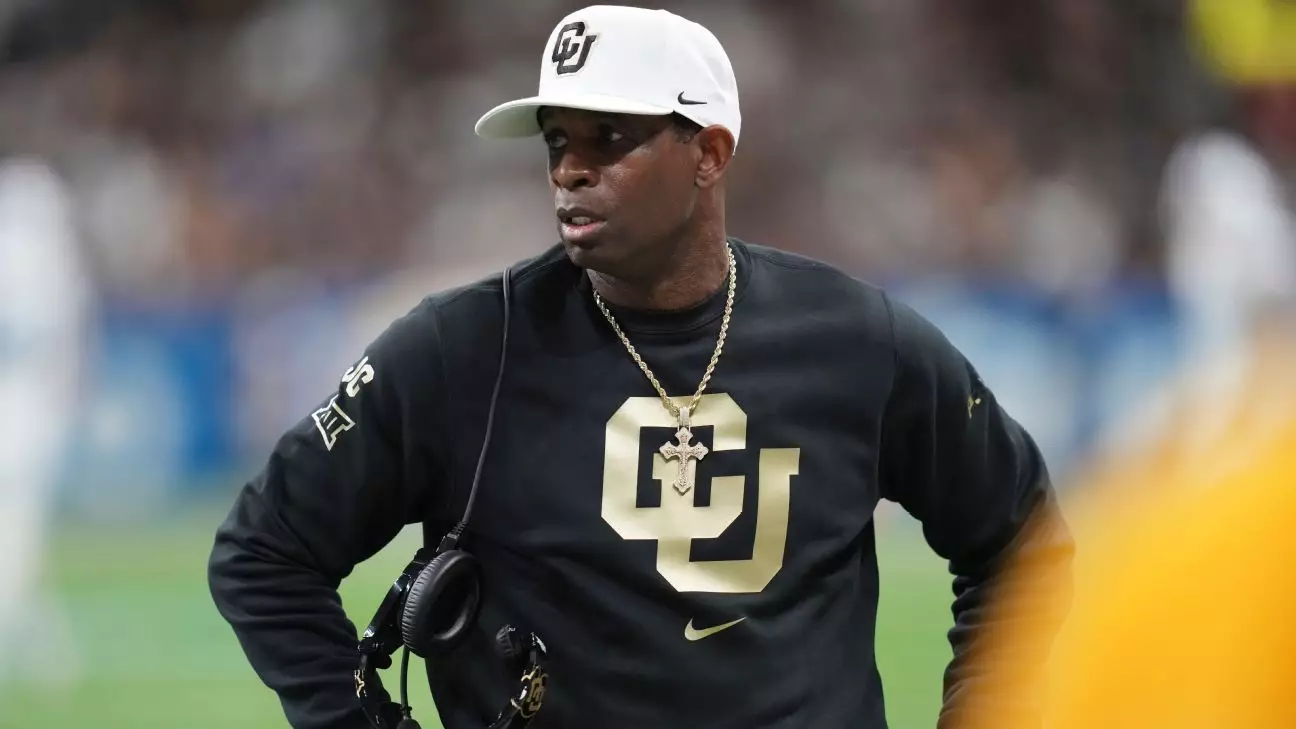Deion Sanders, often known for his flamboyant personality and exceptional skills on the football field, has transitioned into a coaching role that reflects a clear departure from his earlier pro career. Notably, despite intrigue from the Dallas Cowboys regarding their head coaching vacancy, Sanders has opted to remain at the University of Colorado, questioning whether he could adapt to the current landscape of the NFL. In conversations with former Dallas quarterback Troy Aikman on his show “We Got Time Today,” Sanders revealed insights into the demands of today’s professional practices and what it entails to lead a team at that level.
His sentiments resonate with many retired players who struggle to connect with the modern demands of the professional game. The rigor, discipline, and mental fortitude required in today’s NFL have escalated, leading Sanders to reflect on his past experiences in the league and express doubt about stepping back into such a high-pressure environment.
Sanders remembers with nostalgia the intensity of practices during his time with the Cowboys in the 1990s. This intensity, which was a signature of NFL culture at the time, contrasts starkly with the current practice environments. Sanders articulated his discomfort with the contemporary approach, suggesting that the procedural nature of how the NFL manages team practices and player interactions is fundamentally different from an era when grit and passion drove daily operations. He asserts that, as a passionate football enthusiast, he could not condone the changes he perceives in the NFL.
This perspective raises important questions about the evolving culture within professional sports. Coaches today must balance innovative training methods with the essentiality of maintaining discipline and respect on the field. The challenge for any coach transitioning from an era marked by personal competitiveness is to adapt effectively to a game that has become increasingly commercialized and, arguably, diluted in raw passion.
During his tenure as head coach at Colorado, Sanders has achieved a record of 13 wins and 12 losses over two seasons, a performance marked by fluctuations but shining moments as well. The highlight of his coaching career thus far came with a remarkable 9-4 record last season, coupled with the emergence of Travis Hunter, who clinched the Heisman Trophy. Such accomplishments underline Sanders’ ability not only to recruit talent but to motivate and develop players in a college football system.
No doubt, Sanders’ dual-threat coaching strategy—being able to coach both defensive and offensive players—is promising. However, it casts a spotlight on the persistent challenges he faces. Moving forward, whether Sanders can continue to build upon last season’s success will be a determining factor in the trajectory of his coaching career.
When discussing the Cowboys’ interest in him, Sanders recognized that he would have been a unique fit. Troy Aikman’s commentary emphasizes the potential advantage Sanders could bring, particularly in a leadership role where his dynamic personality would command respect. As Aikman noted, there is an intrinsic value for an organization to have a head coach who not only has tactical expertise but also can command the room and instigate a winning mentality.
However, the excitement over potential collaborations became tempered with disappointment among teammates who felt that ownership missed an incredible opportunity. Despite the hype surrounding Sanders, the decision to promote offensive coordinator Brian Schottenheimer was a strategy reflective of in-house changes rather than tapping into a wealth of experience and charisma.
In the ongoing narrative of Deion Sanders, it becomes clear that his future will be shaped by a blend of nostalgia, ambition, and adaptation. From carving out a name for himself as “Prime Time” on the field to evolving into a versatile college coach, Sanders represents a complex evolution that transcends traditional boundaries in sports. As he continues to navigate this terrain, fans and analysts alike will be watching closely, waiting to see whether he will stay true to his words and successfully develop a fresh model of coaching that blends the best of old-school grit and modern strategies.

